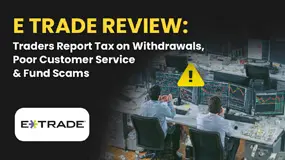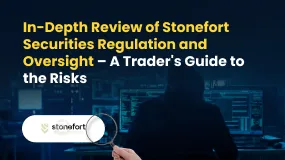简体中文
繁體中文
English
Pусский
日本語
ภาษาไทย
Tiếng Việt
Bahasa Indonesia
Español
हिन्दी
Filippiiniläinen
Français
Deutsch
Português
Türkçe
한국어
العربية
Why Do Malaysians Keep Falling for Money Games?
Abstract:Malaysia has seen a persistent rise in money game schemes, luring thousands of unsuspecting investors with promises of high returns and minimal risk. These schemes operate under various disguises, from investment clubs to digital asset platforms, yet they all follow the same fundamental principle—new investors fund the profits of earlier participants. Once the cycle collapses, the majority are left with devastating losses. Despite repeated warnings and high-profile cases, many Malaysians continue to fall victim. What drives this phenomenon?

Malaysia has seen a persistent rise in money game schemes, luring thousands of unsuspecting investors with promises of high returns and minimal risk. These schemes operate under various disguises, from investment clubs to digital asset platforms, yet they all follow the same fundamental principle—new investors fund the profits of earlier participants. Once the cycle collapses, the majority are left with devastating losses. Despite repeated warnings and high-profile cases, many Malaysians continue to fall victim. What drives this phenomenon?
Economic hardship and financial aspirations play a significant role in the popularity of money games. Many Malaysians face stagnant wages, rising living costs, and limited investment opportunities. When presented with an opportunity that claims to offer exponential returns with little effort, it becomes difficult to resist. Unlike traditional investments that require patience and knowledge, money games promise near-instant rewards, making them especially appealing to those seeking financial relief.

One of the most infamous cases in Malaysia is JJ Poor to Rich (JJPTR). Launched in 2015, JJPTR promised investors a 20% monthly return, allegedly through foreign exchange trading. In April 2017, the scheme collapsed, with its founder claiming that US$400 million was lost due to hacked trading accounts. Thousands of investors suffered significant losses as a result.
Another significant scheme was MBI International. Operating under the guise of a reward system, MBI attracted numerous investors with the promise of lucrative returns. However, authorities later identified it as an unregistered collective investment scheme, leading to legal action and substantial financial losses for participants.
The M Mall, associated with MBI Group, was another venture that lured investors with promises of high returns through investments in retail spaces. This scheme also faced legal scrutiny, highlighting the risks associated with unregulated investment platforms.
Trust is another crucial factor. Many schemes rely on social networks to attract new participants, using word-of-mouth endorsements to build credibility. Friends, colleagues, or even family members who claim to have made profits become powerful persuaders. This personal connection often overrides rational scepticism, leading individuals to invest without conducting due diligence.
The psychological mechanisms behind money game investments are deeply rooted in behavioural finance. Greed and the fear of missing out (FOMO) drive many individuals to participate, even when warning signs are apparent. Seeing others generate returns reinforces the belief that the opportunity is legitimate. Many convince themselves that they can exit before the scheme collapses, failing to realise that most will be caught at the losing end.
Social pressure further amplifies this behaviour. When a close friend or relative introduces an investment opportunity, rejecting it may strain relationships. Some feel compelled to invest simply to maintain social harmony, regardless of their doubts. Others convince themselves that collective participation provides a form of security.
Individuals must critically assess investment opportunities, recognising that if something appears too good to be true, it often is. By understanding the tactics employed by these schemes and the psychological triggers they exploit, potential investors can better protect themselves from falling victim to such fraudulent activities.

Disclaimer:
The views in this article only represent the author's personal views, and do not constitute investment advice on this platform. This platform does not guarantee the accuracy, completeness and timeliness of the information in the article, and will not be liable for any loss caused by the use of or reliance on the information in the article.
Read more

E TRADE Review: Traders Report Tax on Withdrawals, Poor Customer Service & Fund Scams
Has your E Trade forex trading account been charged a withholding tax fee? Did your account get blocked because of multiple deposits? Did you have to constantly call the officials to unblock your account? Failed to open a premium savings account despite submitting multiple documents? Is fund transfer too much of a hassle at E Trade? Did you find the E Trade customer support service not helpful? In this E Trade review article, we have shared certain complaints. Take a look!

mBank Exposed: Top Reasons Why Customers are Giving Thumbs Down to This Bank
Do you find mBank services too slow or unresponsive? Do you find your account getting blocked? Failing to access your account online due to several systemic glitches? Can’t perform the transactions on the mBank app? Do you also witness inappropriate stop-level trade execution by the financial services provider? You are not alone! Frustrated by these unfortunate circumstances, many of its clients have shared negative mBank reviews online. In this article, we have shared some of the reviews. Read on!

In-Depth Uniglobe Markets Commission Fees and Spreads Analysis – What Traders Should Really Know
For experienced traders, the cost of execution is a critical factor in broker selection. Low spreads, fair commissions, and transparent pricing can be the difference between a profitable and a losing strategy over the long term. This has led many to scrutinize the offerings of brokers like Uniglobe Markets, which presents a tiered account structure promising competitive conditions. However, a professional evaluation demands more than a surface-level look at marketing claims. It requires a deep, data-driven analysis of the real trading costs, set against the backdrop of the broker's operational integrity and safety. This comprehensive Uniglobe Markets commission fees and spreads analysis will deconstruct the broker's pricing model, examining its account types, typical spreads, commission policies, and potential ancillary costs. Using data primarily sourced from the global broker inquiry platform WikiFX, we will provide a clear-eyed view of the Uniglobe Markets spreads commissions prici

In-Depth Review of Stonefort Securities Regulation and Oversight – A Trader's Guide to the Risks
For experienced traders, the process of selecting a new broker transcends a simple comparison of spreads and leverage. It is a meticulous due diligence exercise where the integrity of the broker's regulatory framework is paramount. Stonefort Securities, a relatively new entrant in the crowded brokerage space, presents a complex and often contradictory profile. On one hand, it boasts a modern MT5 platform and a stream of positive user testimonials. On the other hand, it is shadowed by severe regulatory warnings that question the very foundation of its operations. This in-depth review focuses on the core issue for any long-term trader: Stonefort Securities regulation and oversight. We will dissect the broker's corporate structure, scrutinize its licensing claims, and analyze what the data implies for trader protection and fund security. For traders evaluating whether Stonefort Securities is a trustworthy partner, understanding these details is not just important—it is essential.
WikiFX Broker
Latest News
WikiFX's New Evaluation of ATM Capital LTD: Does its License Protect the Arab Investor?
How a Fake Moomoo Ad Led to the “New Dream Voyage 5” Scam
Is Axi Legit? A Data-Driven Analysis of Its Regulatory Standing and Trader Feedback
Trive Investigation: High Score, Hidden Risk - The Profit Paradox
In-Depth Uniglobe Markets Commission Fees and Spreads Analysis – What Traders Should Really Know
FXPesa Review: Are Traders Facing High Slippage, Fund Losses & Withdrawal Denials?
CMC Markets Australia Revenue Surges 34%, But High-Net-Worth Clients Face Tax Phishing Threat
Bessent believes there won't be a recession in 2026 but says some sectors are challenged
mBank Exposed: Top Reasons Why Customers are Giving Thumbs Down to This Bank
Young Singaporean Trader Grew USD 52 into a USD 107,700 Portfolio
Currency Calculator



